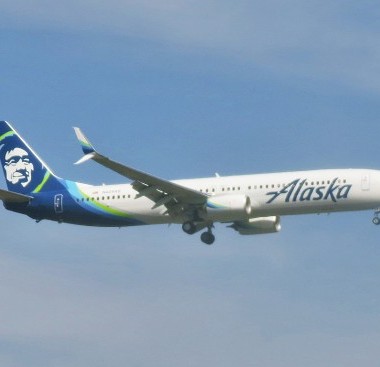Delta Air walks back 2024 profit goal on higher costs, wages
Delta Air Lines Inc. backed away from its 2024 profit target as persistently high costs counter the gains from a rebound in international travel.
Adjusted earnings will be $6 to $7 a share this year, Delta said Friday in a statement that also detailed fourth-quarter results. The company has had a long-term profit target for several years of “more than $7” a share for 2024. Analysts expect $6.50 on average in estimates compiled by Bloomberg.
The outlook shows Delta’s not immune to the elevated costs and other challenges plaguing the industry, as supply chain shortages have increased engine repair times and slowed the delivery of some new aircraft. New pilot contracts at three of the four largest US carriers have pushed up spending for wages and other compensation.
“With all the uncertainty in the environment, we thought it was prudent” to adjust the forecast, Chief Executive Officer Ed Bastian said in an interview. He pointed to challenges including inflation and labor costs. Still, he added, “I’m not giving up on the $7.”
Delta’s shares fell 5.4% as of 6:45 a.m. before regular trading in New York, dragging down fellow carriers United Airlines Holdings Inc. and American Airlines Group Inc. Delta had climbed 5% this year through Thursday’s close, after gaining 22% in 2023.
The forecast took the shine off an otherwise strong quarter for US air travel marked by record numbers of passengers over the Thanksgiving and Christmas holidays. Delta’s fourth-quarter adjusted profit fell to $1.28 a share, topping the $1.16 average of analyst estimates. Revenue excluding sales from the company’s refinery was about $13.7 billion, also beating Wall Street’s expectations.
Adjusted revenue will climb 3% to 6% in the first quarter from a year ago, Delta said. The sales forecast and its per-share earnings projection of 25 to 50 cents were both roughly in line with analysts’ estimates.
Airbus Order
Delta also announced a long-awaited order to purchase 20 A350-1000 aircraft from Airbus SE, underscoring the carrier’s confidence that strength in overseas travel will endure. Deliveries will start in 2026, the company said. It also signed options to take another 20 widebody models.
“International is the future,” Bastian said. “International is where the growth, and an outsized part of our growth, is going forward.”
Passenger revenue on international flights rose 25% in the fourth quarter versus 2022. Corporate sales, which haven’t fully returned to pre-pandemic levels as some employees continue working from home, increased late in the year, including a double-digit year-over-year jump in December, Delta said.
Airlines are locking in future delivery slots early in a bet that travel to foreign markets will continue to swell, and to ensure access to new jets amid lingering manufacturing issues, including parts shortages. Delta last year began to retire its aging 767-300 aircraft. It ordered 100 Boeing Co. 737 Max 10 planes, with options to add 30 more.
Delta has 28 A350-900 aircraft, which can seat 350 passengers in three classes, in its fleet and agreements to buy 16 more. The longer A350-1000 can accommodate 410 and has 40% more room for premium seating, an area of emphasis for the airline.
Delta was the first major US carrier to report results, offering an early glimpse of what investors can expect from the industry to close out 2023.
A group of 12 US airlines is expected to report a $2.2 billion operating profit for the quarter, 50% lower than a year ago, according to Michael Linenberg, a Deutsche Bank analyst. The three largest airlines — Delta, United Airlines Holdings Inc. and American Airlines Group Inc., should report a combined operating profit of $2.6 billion while smaller discount carriers focused on the US market face another quarter of losses, he said in a note.
Similar Stories

Chapman Freeborn agrees partnership with Portuguese multimodal logistics specialist
View Article
Cathay is ready for the commissioning of the three-runway system at Hong Kong International Airport
View ArticleUnited Airlines Holdings Inc. upgraded To ‘BB’; outlook stable
• United Airlines Holdings Inc. is on track to generate credit measures in line with our previous upside rating threshold this year, and we expect improvement in 2025. • The…
View Article
WorldACD Weekly Air Cargo Trends (week 46) - 2024
View Article
Freightos and E2open integrate to simplify air cargo bookings
View Article
Citywide sale-leaseback highlights Phoenix Airport submarket
View ArticleGet the most up-to-date trending news!
SubscribeIndustry updates and weekly newsletter direct to your inbox!





